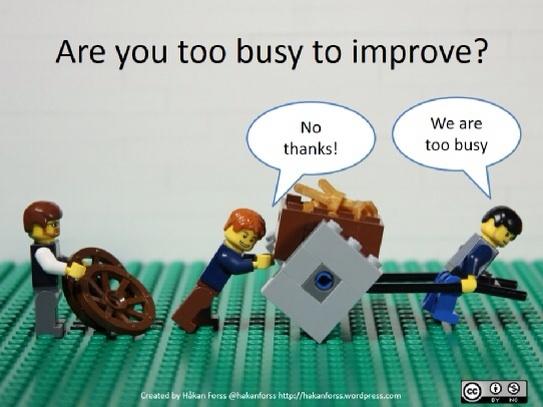Is it the fear of spending money?
There’s an old adage of ‘pay me now or pay me later’ which references the fact that if you don’t fix something while it’s still possible to fix, it will cost you more in the long run to do either a bigger fix or replace. This one confuses me because I’ve worked with companies on ROI/TCO analysis (as an employee, a consultant, and vendor) and found enormous cost savings that can be attained by changing some static technology. Mostly, I use numbers collected by people already using the targeted technology – and that technology in some cases changed even their internal processes for the better!
Is the fear of spending money related to bad experiences? Well, I’m sure we’ve all been turned down for a date at some point in our lives. Did you just stop looking? What if that bad experience was because of a certain vendor or product? I remember having this coffee maker that I’d have to replace each year – sure the replacement was free of charge, but that was after I had paid for the warranty and the shipping fee each time. So I tried another vendor/product. And you know what? I’ve been happy with this new one for a long time now. I didn’t lump the new vendor into the, “they’re all the same” bucket. I just researched and found a better one offered by the new vendor. This was for something I used maybe once per day! Yet in IT, people use tools a few times per day if not many times per day.
Even if the current tools and solutions are slow, don’t give the proper information, are difficult to extend, and difficult to configure, we make NO change to overcome these limitations!
The worst part is when I hear someone say, “We can’t change it because what we have is kind of proprietary and we’d need to configure a new product to do the same”. First, anytime a vendor puts you into that position, it’s not a good thing! A loud warning signal should sound every time you hear that you can’t remove bad technology for good technology because you may be locked into the bad. Definitely take a look at your alternatives! You may find that carrying over (migrating) core data to the new solution is NOT such a big deal anymore. Most innovative vendors understand you need to MOVE stuff to their solution and have accommodated that with many features and utilities for just that purpose. Maybe when you get to that point, you’ll find that “doing it the same way” wasn’t the most expedient or productive or cost effective method in the first place.

The bottom line is – if you don’t explore what’s out there, how do you know if it’s better or worse? If you can’t initiate change, then how do you improve anything? If your fears are based on old experiences, perhaps those experiences are no longer relevant? Perhaps awareness of a better way is a good thing?
Well, back to blog another day --- time to push an episode of ‘Last Ship’ from Hulu onto my 55 inch LED wall screen via Chromecast. And I don’t even have to get out of this chair to do it :)



 easy decision??
easy decision?? 
 vs.
vs. 









